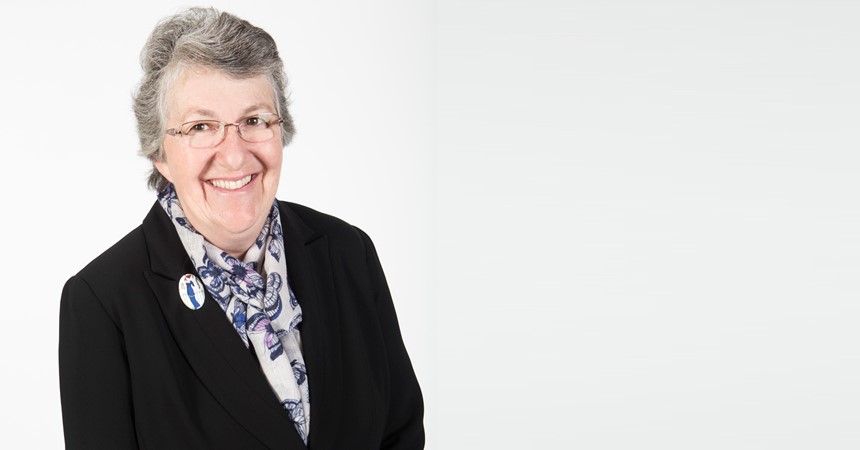 This year the United Nations General Assembly has declared this as a day devoted to strengthening the ideals of peace, both within and among all nations and peoples. The Day’s theme for 2016 is “The Sustainable Development Goals: Building Blocks for Peace.”
This year the United Nations General Assembly has declared this as a day devoted to strengthening the ideals of peace, both within and among all nations and peoples. The Day’s theme for 2016 is “The Sustainable Development Goals: Building Blocks for Peace.”
UN Secretary-General, Ban Ki-moon, said:
The people of the world have asked us to shine a light on a future of promise and opportunity. Member States have responded with the 2030 Agenda for Sustainable Development…. It is an agenda for people, to end poverty in all its forms. An agenda for the planet, our common home. An agenda for shared prosperity, peace and partnership.
Our Sunday readings fit in well with this desire. In my Sunday Missal the following words accompanied the readings:
Slaves of God or Money? The Christian community must contribute to the welfare of the broader human society. We have a duty to pray for civil leaders and to act justly in our places of work. We must do what we can to ensure that the institutions of our society are devoted to the well-being of all citizens. It we ourselves are devoted to God and not to money, we will bring great riches to our society.
It appears that there has been a desire since ancient times to bring about peace and justice for all by sharing all that we have in common. The following text can be found on www.un.org/sustainabledevelopment/
The 17 Sustainable Development Goals were unanimously adopted by the 193 Member States of the United Nations at an historic summit of the world’s leaders in New York in September 2015. The new ambitious 2030 agenda calls on countries to begin efforts to achieve these goals over the next 15 years. It aims to end poverty, protect the planet and ensure prosperity for all.
The Sustainable Development Goals are integral to achieving peace in our time, as development and peace are interdependent and mutually reinforcing.
“The 17 Sustainable Development Goals are our shared vision of humanity and a social contract between the world's leaders and the people,” said UN Secretary-General Ban Ki-moon. “They are a to-do list for people and planet, and a blueprint for success.”
Sustainability addresses the fundamental needs of the present without compromising the ability of future generations to meet their own needs. Modern challenges of poverty, hunger, diminishing natural resources, water scarcity, social inequality, environmental degradation, diseases, corruption, racism and xenophobia, among others, pose challenges for peace and create fertile grounds for conflict. Sustainable development contributes decisively to dissipation and elimination of these causes of conflict and provides the foundation for a lasting peace. Peace, meanwhile, reinforces the conditions for sustainable development and liberates the resources needed for societies to develop and prosper.
Every single one of the 17 Sustainable Development Goals is a building block in the global architecture of peace. It is critical that we mobilise means of implementation, including financial resources, technology development and transfer, and capacity-building, as well as the role of partnerships. Everyone has a stake and everyone has a contribution to make.
Sustainable Development Goals improve life all around the globe by ending poverty, protecting the planet and ensuring prosperity for all.
 Here is a list of the 17 Sustainable Development Goals:
Here is a list of the 17 Sustainable Development Goals:
 No Poverty
No Poverty- Zero Hunger
- Good Health and Well-Being
- Quality Education
- Gender Equality
- Clean Water and Sanitation
- Affordable and Clean Energy
- Decent Work and Economic Growth
- Industry, Innovation and Infrastructure
- Reduced Inequalities
- Sustainable Cities and Communities
- Responsible Consumption and Production
- Climate Action
- Life Below Water
- Life on Land
- Peace, Justice and Strong Institutions
- Partnerships for the Goals
In July this year, the United Nations held a high level political forum on the implementation of the Sustainable Development Goals (SDG). Paul O’Callaghan, CEO of Caritas Australia, attended this forum on behalf of Caritas Internationalis. Unlike the Millennial Development Goals, which involved reporting only from developing countries, the SDG framework includes rich and poor countries. A central commitment by governments is to “leave no one behind” as they implement these goals. Paul O’Callaghan was representing the Caritas Oceania network, as small island states face serious capacity challenges as they try to implement the SDG framework. I wonder if our own government is giving consideration to these SDG? Would we be a better nation if we looked outside our own self-interests and considered the plight of those who share our planet? I am similarly convinced that we would be a more credible church if we looked beyond our own issues, if we focused on mission rather than maintenance.
It seems that the two principles which the high level political forum focused on for effective implementation of the SDG were:
- Leaving no one behind
- Solidarity with the excluded, solidarity with the poor of tomorrow and solidarity with future generations
At the General Assembly of the United Nations in September of 2015, Pope Francis remarked:
Above and beyond our plans and programs, we are dealing with real men and women who live, struggle and suffer, and are often forced to live in great poverty, deprived of all rights.
Earlier this year the Vatican held a conference to re-evaluate Just War Theory. At this conference the participants rejected the Catholic Church’s long-held teachings on just war theory, saying they have too often been used to justify violent conflicts and the global church must reconsider Jesus’ teachings on nonviolence. They went on to say that just war undermines the moral imperative to develop tools and capacities for nonviolent transformation of conflict. What was suggested was the development of a just peace approach based on Gospel nonviolence. One of the central messages was around developing and promoting relationships of harmony. The group’s final appeal states succinctly:
The time has come for our Church to be a living witness and to invest far greater human and financial resources in promoting a spirituality and practice of active nonviolence. In all of this, Jesus is our inspiration and model, neither passive nor weak, Jesus’ nonviolence was the power of love in action.
I came across this quote which I had written down and which I think Pope Francis spoke to those gathered at World Youth Day:
People may judge you to be dreamers, because you believe in a new humanity, one that rejects hatred between peoples, one that refuses to see borders as barriers and can cherish its own tradition without being self-centred or small-minded.
Am I bold enough or courageous enough to believe that the tide is turning and that the critical mass is considering the conversations covered in this message? We must believe and then action peace in our own lives and the lives of those we encounter while demanding that those in leadership listen to the cry of those who imagine the world to be based on the principles of social justice and the goals of sustainable development. It is from this that peace will flow.
I invite you to pray daily the Prayer of St Francis:
 Lord, make me an instrument of your peace.
Lord, make me an instrument of your peace.
Where there is hatred, let me sow love;
where there is injury, pardon;
where there is doubt, faith;
where there is despair, hope;
where there is darkness, light;
where there is sadness, joy.
O, Divine Master, grant that I may not so much
seek to be consoled as to console;
to be understood as to understand;
to be loved as to love;
For it is in giving that we receive;
it is in pardoning that we are pardoned;
it is in dying that we are born again to eternal life.
Peace to you,

